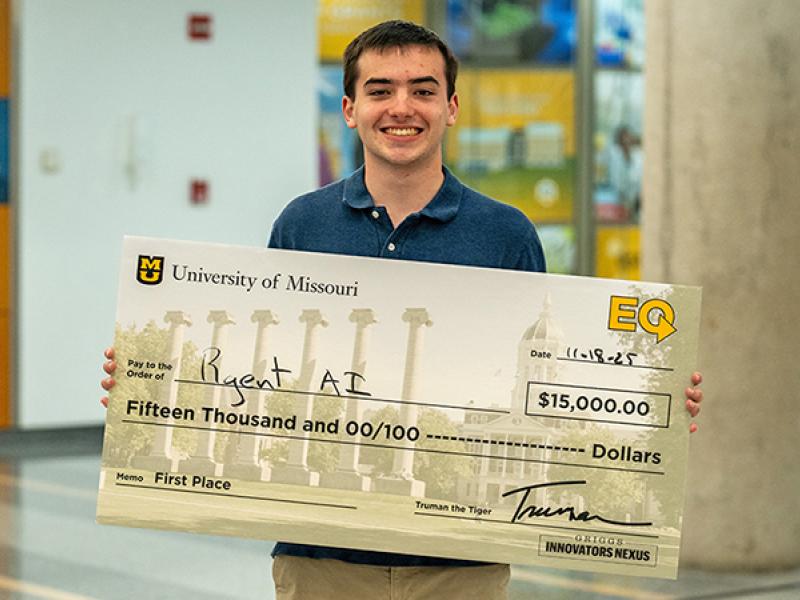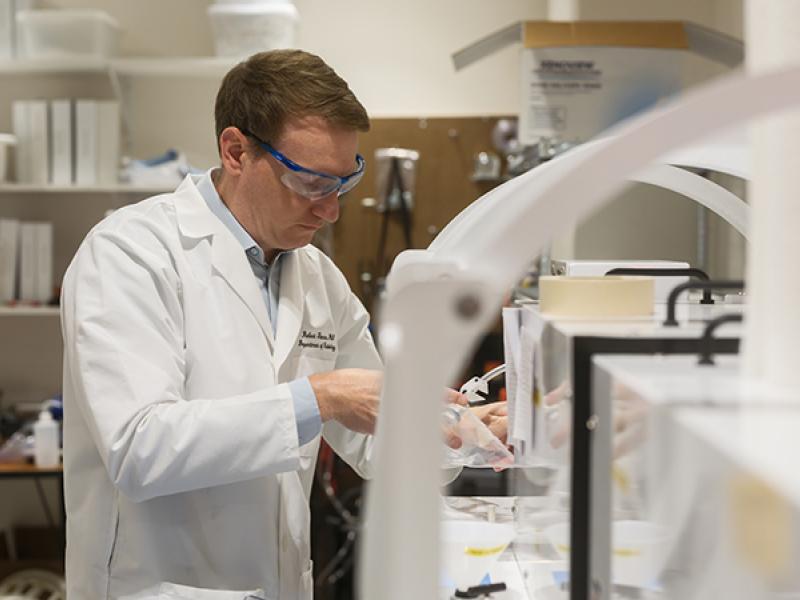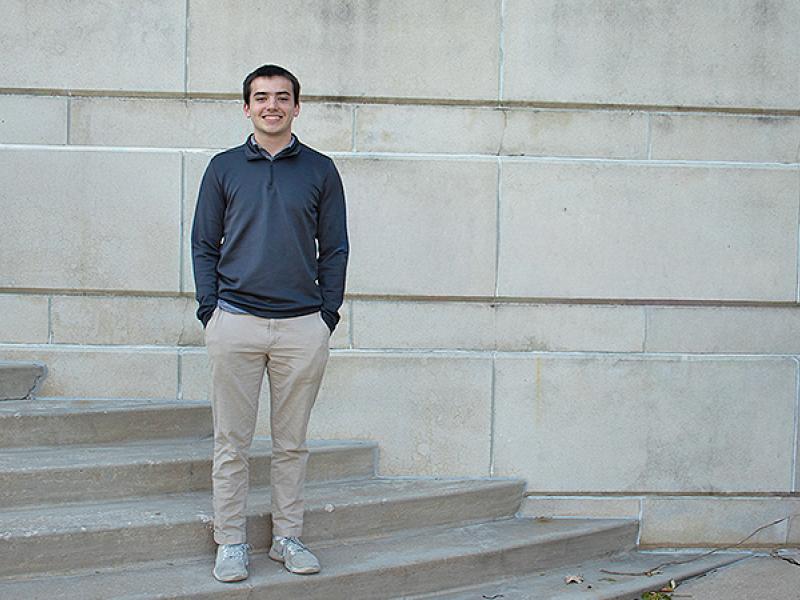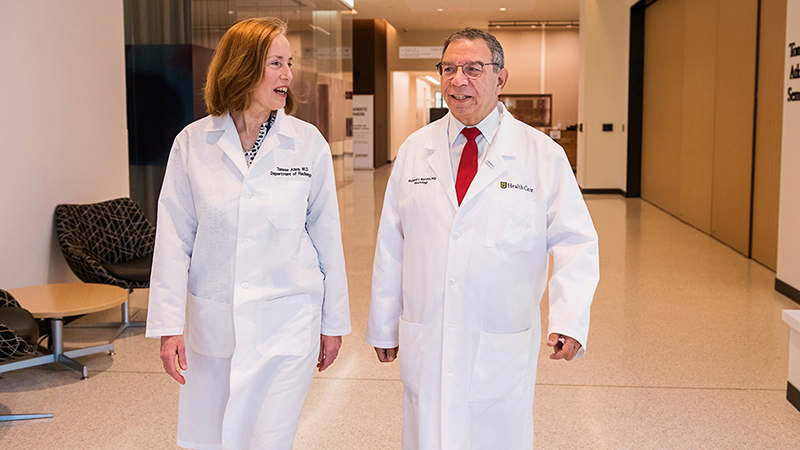
Collaborative, curious, innovative. These characteristics define Richard J. Barohn, MD, a leader who firmly believes in not only pushing the envelope to solve the most pressing health care problems, but also inviting those around him to join in that journey. Barohn, executive vice chancellor for health affairs and the newly appointed dean of the School of Medicine, believes “there is always a way to make things better, and we must work every day to do so.”
Whether he’s working to improve how MU educates medical students, improving the quality of care and patient experience, identifying new ways to meet patient needs or initiating and engaging in research, Barohn relishes discovering and empowering new strategies and approaches.
A neurologist who specializes in rare diseases, he is constantly in pursuit of connecting people to foster the exchange of ideas.
“My goal is finding new innovative ways to encourage people to work together to solve problems and to see the ultimate benefit,” he explained.
Barohn has dedicated much of his career to public service — including serving in the Air Force, where he rose to the rank of lieutenant colonel — and is deeply inspired by the University of Missouri’s position as one of only six public universities in America with schools of medicine, veterinary medicine, agriculture, engineering and law on the same campus. A native of St. Louis, he was among the first group of students in the UMKC School of Medicine’s combined BA/MD program. Since joining MU in 2020 as the EVC and inaugural scientific director of the NextGen Precision Health initiative, he has created and capitalized on opportunities to connect the dots among clinical, academic and research pursuits.
“Having a clinical scientist lead the charge means that we have someone who cares deeply about and understands our missions,” said Talissa Altes, MD, chair of the Department of Radiology. “He has extensive knowledge on what it takes to be successful in research, clinical care and education. Furthermore, he understands the importance of making sure the hospital, School of Medicine and the university are aligned and have the support they need to thrive.”
When the university secured leading-edge imaging equipment — including a MAGNETOM Terra 7-Tesla MRI scanner — through its Alliance for Precision Health partnership with Siemens Healthineers, Barohn joined with Altes to recruit top imaging research scientists from across the country.
“Connecting research imaging scientists with scientists and clinicians on campus allows us to identify ways to leverage these new tools to benefit patient care and enhance research,” he said.
“In the past, I have worked with others to hire staff. The difference in working with Rick were his insights, his time, as well as his willingness to make decisions quickly,” Altes added. “He took the time to mentor a new hire and was helpful in promoting their career. It wasn’t just getting them in the door, it was about setting them up for success. He takes the time to make the right introductions with new hires and existing staff members and to encourage collaboration.”
Barohn has a long history of championing colleagues and mentees. As Barohn’s first neuromuscular fellow, Carlayne Jackson, MD, professor of neurology and otolaryngology at the University of Texas Health Science Center San Antonio, credited Barohn’s support as the reason she decided to stay in academic medicine.
“He has been an outstanding mentor and introduced me to colleagues that helped me advance my career. He is always willing to listen and problem-solve,” she said.
At MU, Barohn has continued his legacy of championing and challenging new physicians to work together to find new ways to improve patient care and the patient experience.
“Dr. Barohn is an inspiring leader,” said Brandi French, MD, interim chair of the Department of Neurology. “He motivates us to think big and challenge ourselves to achieve more both clinically and academically.”
Barohn recognizes that it is often necessary to break down barriers that hinder progress and improvement. Recognizing the access challenges facing rural communities, he implemented a telehealth ALS clinic for rural Kansans — long before the pandemic made telehealth a key component of care. He’s initiated a task force to look at the role MU Health Care and the School of Medicine should play in bridging the gap for patients across Missouri.
He's committed to making these connections not from an “ivory tower” of academia but as an engaged community member. Barohn is intentional in his efforts to learn from his colleagues, neighbors and fellow leaders across the region to ensure he understands the “heart” of the communities MU serves.
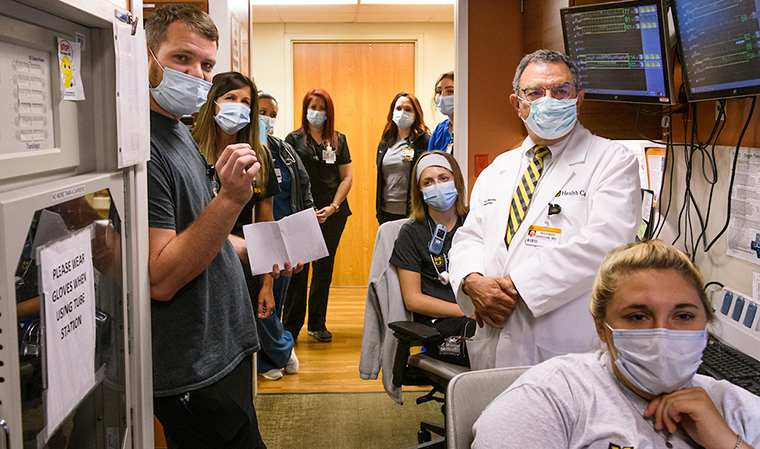
“We must be compassionate and caring toward each other,” Barohn said.
Central to advancing Barohn’s ambitious vision is Mizzou Forward — a transformational faculty recruiting effort to strengthen innovation in research disciplines that will move the needle in the university’s work to improve lives around the world.
“Dr. Barohn is very active in identifying and recruiting leaders, researchers and physician-scientists. He is committed to growth and progress. His attention, energy and network have accelerated and enriched ours,” said Kristin Hahn-Cover, MD, former chair of the Department of Medicine.
As Barohn serves in his dual leadership roles, he will continue to prioritize collaboration and compromise.
“We need to work across departments, divisions and schools,” he said. “We need to seek the right balance to ensure that the mission of the hospital and the academic missions are truly aligned. We must capitalize on our opportunity, together, to find synergies and accelerate the positive changes we want to make at MU Health Care and the School of Medicine. We are the flagship, public health care institution for the state of Missouri. We take this seriously, and we will work tirelessly to ensure the University of Missouri School of Medicine and MU Health Care are nationally recognized and that all Missourians will be proud of what we are, what we do and who we train and take care of.”



